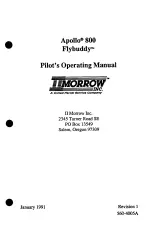
11
First Time Fix
The fi rst time you power up your new GPS 16, the
receiver must be given an opportunity to collect satellite
data and establish its present position. To ensure proper
initialization, the GPS 16 is shipped from the factory in
AutoLocate mode, which will allow the receiver to “fi nd
itself” anywhere in the world.
Once the GPS 16 is installed and powered on, it will
begin to search for satellites. The GPS 16 will output
navigation data once it has calculated an initial position
fi x. By default, the following data will be output in
NMEA 0183, Version 2.0 format:
• Latitude/Longitude/Altitude (GPGGA, GPRMC,
GPGLL)
• Velocity (GPRMC)
• Date/Time (GPRMC)
• Error Estimates (PGRME)
• Satellite and Receiver Status (GPGSA, GPGSV,
PGRMB, PGRMT)
WAAS Capability
The GPS 16 is capable of receiving WAAS (Wide
Area Augmentation System) satellite signals. WAAS is an
FAA (Federal Aviation Administration) funded project to
improve the overall accuracy and integrity of the GPS
signal for aviation use, but land/sea based users may also
benefi t from this system. At this time, the system is still in
the development stage and is not fully operational. There
are currently two WAAS satellites that can be received in
the U.S.A., one over the Atlantic Ocean and one over the
Pacifi c Ocean, in a geo-stationary orbit over the equator.
Effective use of the WAAS satellite signal may be limited
by your geographic location in relation to those satellites,
now in developmental service. WAAS satellite signal
reception requires an absolute clear view of the sky and
works best when there are no nearby obstructions such
as buildings, mountains, etc. WAAS satellites will be
numbered 33 or higher when viewing the sky view on
your NMEA device. First-time use of the WAAS feature
may take up to 15-20 minutes to obtain differential
Operation
Using the
GPS 16
GPS16 QSG.indd
10/16/01, 9:30 AM
11

































